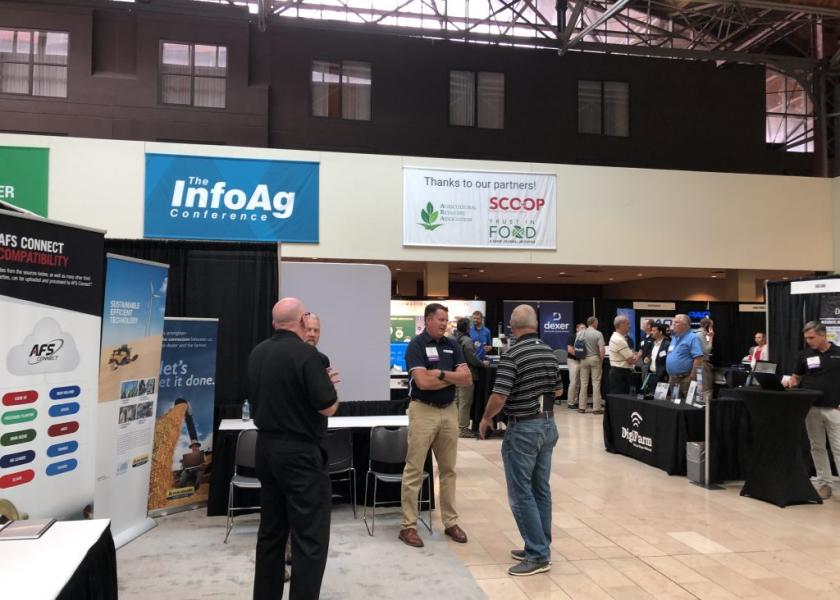Precision, Sustainable Ag And Product Tech Drive InfoAg Conference

More than ever, farmers’ trusted advisers need insights on precision agriculture, sustainability and product technology such as biostimulants, energy-efficient fertilizers and coatings. Delivering on those educational needs and providing a community drives The Fertilizer Institute (TFI) in its vision for the future of the InfoAg Conference, held for its second year under TFI’s leadership in July 2022.
All three themes featured prominently in this year’s conference, held at the St. Louis Union Station Hotel. Farm Journal’s The Scoop and Trust In Food are exclusive media partners of the event. The 2023 event takes place June 27-28 in St. Louis.
“Our real goal and objective is to make this the gathering for retail agronomists,” says Corey Rosenbusch, president and CEO of TFI. Environmental pressures, global initiatives to reduce carbon footprint and other factors are converging to make agronomists’ job of advising farmers more important than ever before. “How do we begin to evaluate all of these products? This event is the platform to educate them.”
To achieve that goal, the organizers focus on a ratio of two exhibitors for every one customer. This year’s gathering included 400 exhibitors and 200 buyers, customers and independent consultants.
Among the conversation topics in between sessions and during breaks: A combination of high input costs and strong commodity prices, which has driven innovation, Rosenbusch says.
Farmers want to be as efficient as possible, and “that has been accelerated because of the market environment we’re in,” he points out. Meanwhile, farmers want to ensure they’re as productive as possible to take advantage of healthy corn and soy prices.
To help farmers achieve those objectives, new kinds of inputs are entering the marketplace. One example is biostimulants, which have been around for years. At the request of ag retailers and biostimulant company members, TFI has convened a group with the intention of developing industry standards for biostimulant efficacy and safety.
These standards will allow agronomists to easily compare products and focus their attention on those with the best chances of helping a farmer-customer. That won’t guarantee a yield bump, but it will create a level playing field for biostimulant companies and their end users, Rosenbusch explains.
Six biostimulant products are involved in a pilot phase TFI is administering, and a certification program for biostimulant labeling is expected to be launched by the end of 2022, Rosenbusch says. The program will serve as a resource for American plant food control officials, who administer fertilizer rules for the states, each of which has its own registration process for biostimulants.
Beyond biostimulants, Rosenbusch encourages farmers and the industry to evaluate the potential benefits of science-based conservation practices alongside of new and conventional inputs such as fertilizer. He points to anticipated emerging markets that could pay a premium for good environmental stewardship and to longstanding programs such as 4Rs that can help farmers precisely manage inputs.
The risk of not working toward a more sustainable future for agriculture that includes responsible input use can be seen in places such as Sri Lanka, Rosenbusch says. There, civic and political unrest occurred this year after a fertilizer ban decimated crop yields, putting fertilizer in the spotlight.
“It really just raised the profile of how critical fertilizer is to the world,” Rosenbusch says. The conversation plus the impact of the war in Ukraine kept TFI in the spotlight this spring, with media mentions soaring to 160% of normal levels.
Looking ahead to the 2023 conference, Rosenbusch encourages the crop consultant community to share its feedback with event organizers.
“Tell us what you need out of something like this,” he says. TFI seeks to create a conference that’s a one-stop shop for industry professionals. The pace of change in agriculture continues to accelerate, and gatherings such as InfoAg can help leaders stay ahead of the curve.
To learn more about the InfoAg Conference, including details for the 2023 event, visit InfoAg.org.







